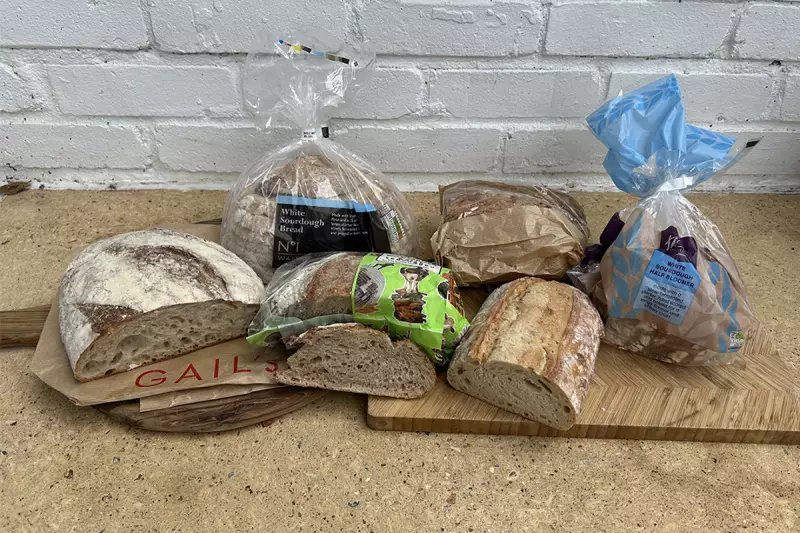
Remember when a French stick was considered an adventurous loaf? Those days are long gone, as sourdough has firmly taken its place as the UK's bakery favourite. With queues forming outside artisan bakeries and loaves selling out daily, it was only a matter of time before supermarkets launched their own versions.
The Ultimate Supermarket Sourdough Taste Test
Emma Henderson, a food journalist and former editor of The Independent's IndyEats magazine, embarked on a mission to find the best supermarket sourdough. She rigorously tested more than 20 loaves from major supermarkets' own ranges and premium brands available on supermarket shelves.
Every loaf was evaluated based on crumb structure, crust quality, flavour profile, and shelf life. Henderson kept in mind advice from Swie Joo, head baker at The Palmerston in Edinburgh, who emphasised checking ingredients lists. 'Sourdough isn't a legally protected term,' Joo explains, advising shoppers to avoid loaves listing 'yeast' as an ingredient.
The Winning Loaves: Our Top Picks Revealed
After extensive testing, these eight sourdough loaves stood out from the crowd for their exceptional quality and value.
Wildfarmed white sourdough bread (£4, Waitrose.com) claimed the top spot as best overall. This 600g loaf, co-founded by Groove Armada's Andy Cato and presenter George Lamb, uses regeneratively grown wheat and represents the only B Corp certified brand in the test. The bread undergoes a 32-hour slow fermentation and is hand-shaped, resulting in a pleasing chewiness and slight tang that impressed testers.
Gail's San Francisco sourdough (£5, Waitrose.com) secured the runner-up position. Despite its premium price point, this 650g loaf delivers an excellent crunchy exterior and complex flavour from a blend of grains including spelt, emmer, and rye. It features the most open crumb structure of all loaves tested.
Bertinet Bakery rustic country white sourdough (£2, Waitrose.com) was named best pre-packaged option. This 500g loaf from the Bath-based bakery uses heritage grains and contains no preservatives, offering exceptional value and a pleasant tang that worked beautifully as toast.
Surprising Supermarket Success Stories
Several supermarket own-brand loaves delivered impressive results that challenged more expensive artisan options.
Waitrose no 1 white sourdough bread (£2.25, Waitrose.com) emerged as the best for flavour. This pre-sliced 500g loaf surprised testers with its intense tangy flavour and good spring, making exceptional toast that earned thumbs up from all testers.
Exceptional by Asda white sourdough loaf (£2, Asda.com) proved that everyday sourdough can deliver quality. The 500g pre-sliced loaf features an even crumb and good structure, suggesting proper fermentation, despite its affordable price point.
Lidl large white sourdough bloomer (£1.99, in-store only) was recognised as the best budget option, offering remarkable value without compromising on authentic sourdough characteristics.
Sainsbury's taste the difference white sourdough half bloomer (£1.95, Sainsburys.co.uk) took the title for best toast-making sourdough. While it leans more toward conventional white bread in texture, its 400g loaf creates perfect toast at an accessible price.
For those with dietary requirements, Good Grain Bakery gluten free seeded sourdough (£5.30, Ocado.com) stood out as the best gluten-free option. The 550g seeded loaf uses organic gluten-free flour and provides a decent replica for those avoiding gluten, despite the expected density common to gluten-free breads.
Co-op irresistible slow crafted white sourdough bloomer (£3, Coop.co.uk) impressed with its evenly distributed crumb, featuring little air pockets throughout the loaf, though it had a fairly low rise compared to other options.
What Makes a Great Sourdough?
According to baking experts, a genuine sourdough should be made with a live sourdough starter and undergo slow fermentation. The result should be a spongy crumb with evenly sized and distributed air pockets, avoiding 'tunnelling' where holes become too large and frequent.
Henderson monitored shelf life as an indicator of quality, noting that sourdough typically stays fresh for two to three days before staling, with mould possibly appearing after five to seven days. Loaves lasting significantly longer may contain preservatives.
The testing process involved eating bread plain, in sandwiches, and as toast with butter to thoroughly assess each loaf's performance across different consumption methods. This comprehensive approach ensured that the winning selections truly represent the best supermarket sourdough available to UK shoppers in 2025.





